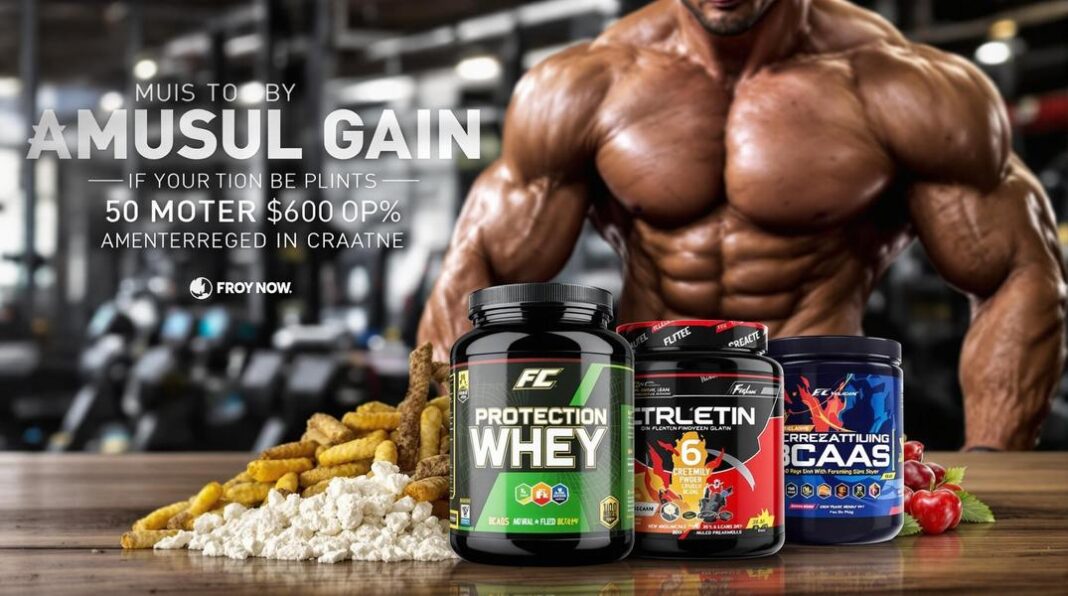The Science of Strength: Which Supplements Actually Build Muscle?
In the quest for bigger biceps and sculpted physiques, Americans spend billions annually on supplements promising Herculean results. But which ones actually deliver?
The supplement industry’s marketing often outpaces the science, but a handful of products have consistently shown real benefits for muscle growth when combined with proper resistance training. Topping virtually every expert list is creatine monohydrate — a compound that’s become the gold standard for those serious about strength gains, studies confirm.
“Creatine is probably the single best supplement for muscle gain for both males and females,” according to health researchers who’ve tracked its effectiveness across numerous clinical trials. What makes it particularly valuable isn’t just that it works, but how it works.
The science behind creatine isn’t particularly complex. When we lift weights, our muscles use adenosine triphosphate (ATP) for energy. As these stores deplete, fatigue sets in. Creatine essentially recharges this system faster, allowing for those crucial extra repetitions that ultimately trigger greater muscle growth.
But creatine isn’t the only player in the supplement game. What else actually works?
Protein supplements — particularly whey protein — remain a cornerstone for muscle development, providing the building blocks muscles need to repair and grow after training. The convenience factor can’t be overlooked either; getting adequate protein solely from whole foods can be challenging for many, especially those with higher body weights or training volumes, experts note.
Beyond the big two, several other supplements have shown promise. Beta-alanine helps buffer acid in muscles, potentially allowing for more work before fatigue sets in. Branched-chain amino acids (BCAAs) may support recovery and reduce muscle soreness, while HMB (beta-hydroxy beta-methylbutyrate) appears to help prevent muscle breakdown during intense training periods.
The response varies from person to person, however. “There does seem to be quite a bit of variation with regards to the response to creatine,” fitness researchers caution. “Also, note that creatine doesn’t simply do the work for you. The benefits you get from supplementing with it only apply if you’re actually pushing yourself harder in your workouts as a result.”
Other supplements with research backing include glutamine for recovery and carnitine, which may help with fat metabolism during exercise, according to the National Academy of Sports Medicine, which lists eight top supplements for muscle development.
The key takeaway for consumers? Supplements should supplement — not replace — proper nutrition and progressive resistance training. Even the most effective muscle-building compounds can’t overcome poor workout programming or inadequate recovery.
That said, for those willing to put in the work, the right supplements used consistently can provide a meaningful edge. Just don’t expect miracles from a bottle alone.


